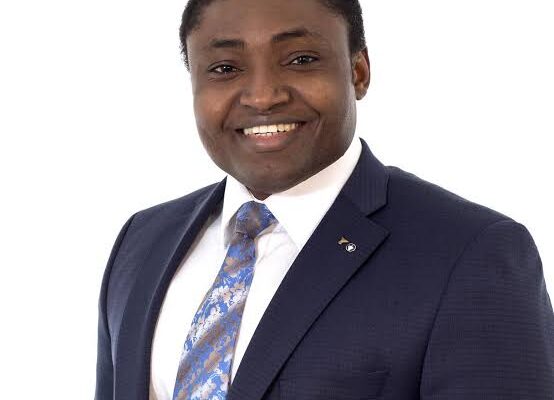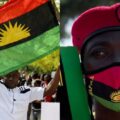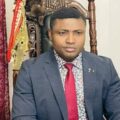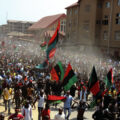Simon Ekpa, a Nigerian-born Finnish lawyer, political activist, and former athlete, has emerged as a prominent figure in the Biafra independence movement.
His journey from a successful athlete to a fervent advocate for Biafran independence is a compelling narrative that has captured the attention of many.
Early life and education
Born on 21st March 1985 in Ohaukwu, Ebonyi State, Nigeria, Ekpa’s athletic prowess was evident when he won a silver medal for Nigeria in the 100 meters at the 2003 African Junior Athletics Championships in Cameroon.
His academic pursuits led him to Aberystwyth University, where he pursued a Master’s degree in Law. Additionally, Ekpa furthered his studies at Canyon College, demonstrating his commitment to academic and intellectual growth.
Transition to activism
Upon relocating to Lahti, Finland in 2007, Ekpa became a member of the National Coalition Party of Finland and even contested in the 2022 Finnish county elections.
His involvement with the Indigenous People of Biafra (IPOB) and his role as the designated Prime Minister of the Biafra Republic Government in Exile (BRGIE) organization have brought him both acclaim and criticism.
Controversies and recognition
Ekpa’s calls for civil disobedience campaigns and “stay at home” orders have sparked fear and compliance among residents, drawing both attention and criticism from various quarters.
The Nigerian government’s demand for Finland to halt Ekpa’s activities and allegations of illegal fundraising by the Finnish National Bureau of Investigation have further intensified the scrutiny surrounding his actions.
Despite this, his recent recognition as an Ambassador for Peace by the Universal Peace Federation attests to his dedication to advocating for the rights and independence of the Biafran people.
Simon Ekpa’s story is one of resilience, passion, and unwavering determination in the pursuit of a cause he holds dear.
As he continues to navigate the complexities of his role within the Biafra independence movement, his impact and influence are undeniable, making him a central figure in the ongoing discourse surrounding Biafra’s quest for self-determination.








